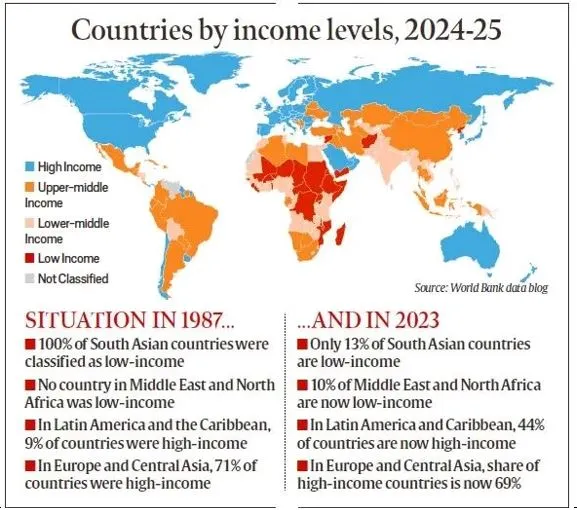

9th July 2024 (11 Topics)
Context
Despite extensive Western sanctions in place for over two years, Russia's economy has surprisingly performed well recently. The World Bank upgraded Russia to a "high-income" country due to significant growth in trade (+6.8%), finance (+8.7%), and construction (+6.6%) sectors.
Factors Driving Growth:
- Growth is largely attributed to increased military-related activity, which has boosted economic indicators temporarily.
- Fiscal stimulus, military spending, and credit expansion have supported recovery post-sanctions.
- Trade diversification to China, India, Türkiye, and Central Asia helped mitigate the impact of Western sanctions.
- Strong private consumption, driven by low unemployment (3%) and rising wages, has bolstered economic activity.
- Government spending, including increased defense spending (about 7% of GDP), has also contributed to growth.
- Challenges and Uncertainties: Long-term economic prospects remain uncertain due to ongoing sanctions and supply chain disruptions.
Why Sanctions on Russia Haven't Worked
- Oil Sector Dynamics: Sanctions on Russia's energy sector were designed with loopholes to prevent a sharp rise in global oil prices and ensure continued supply to Western markets. Despite reduced exports to Western Europe, Russia has successfully redirected oil shipments to other regions like China and India, maintaining overall export volumes and revenue.
- Investment Resilience: Despite sanctions, corporate investment in Russia has rebounded, particularly in defense and manufacturing sectors. Some imports have been substituted with domestic production, prompting investments in new manufacturing facilities.
- Consumption and Economic Activity: Strong consumer spending, supported by low unemployment and rising wages, has sustained economic growth. Fiscal policies and increased defense spending have injected further stimulus into the economy, countering the impact of sanctions.
- Economic Adaptation: Russia has successfully shifted its trade focus away from Western countries to alternative markets in Asia and Eurasia, reducing reliance on sanctioned economies. Over time, Russian economic policies have adapted to sanctions imposed since 2014, minimizing their overall impact.
Fact Box:
|




